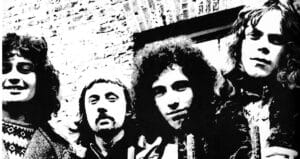Rick Wakeman: The Virtuoso of Progressive Rock
Introduction
Rick Wakeman is a legendary English keyboardist, composer, and songwriter, best known for his innovative work with the progressive rock band Yes and his prolific solo career. Born on May 18, 1949, in Perivale, Middlesex, England, Wakeman is celebrated for his technical brilliance, theatrical performances, and groundbreaking contributions to rock music. His fusion of classical training and a flair for experimentation has cemented his status as one of the greatest keyboard players in history.
Early Life and Musical Beginnings
Rick Wakeman grew up in a musical household, learning piano at a young age and displaying prodigious talent. He attended the Royal College of Music, where he honed his classical skills, but he left before graduating to pursue a career in the burgeoning rock scene of the late 1960s.
Wakeman quickly became an in-demand session musician, contributing to albums by artists like David Bowie (notably on “Space Oddity”), Cat Stevens, and Elton John. His distinctive style and technical mastery caught the attention of prog rock fans and musicians alike
Yes: Redefining Progressive Rock
In 1971, Wakeman joined Yes, replacing keyboardist Tony Kaye. His arrival marked a new era for the band, as his elaborate arrangements and mastery of the Mellotron, Moog synthesizer, and Hammond organ expanded their sound. His tenure with Yes included some of their most iconic albums:
- “Fragile” (1971)
Wakeman’s first album with Yes featured his virtuosic keyboard work, particularly on tracks like “Roundabout” and “South Side of the Sky.”
YES – Roundabout
- “Close to the Edge” (1972)
Widely regarded as one of the greatest progressive rock albums, Wakeman’s intricate contributions to the title track and “And You and I” showcased his ability to blend complexity with emotion. - “Tales from Topographic Oceans” (1973)
A sprawling double album that pushed progressive rock to its conceptual limits. Wakeman, though critical of the album’s excesses, added ethereal textures and ambitious solos. - “Going for the One” (1977)
After a brief departure, Wakeman rejoined Yes for this critically acclaimed album, which included the epic track “Awaken”—a masterpiece of symphonic rock.
Wakeman’s theatrical presence and penchant for capes during live performances became iconic, adding to the band’s mystique.
A Prolific Solo Career
In parallel to his work with Yes, Wakeman embarked on a highly successful solo career. His albums often combined rock with classical and theatrical elements, creating immersive musical narratives. Some of his most notable solo works include:
- “The Six Wives of Henry VIII” (1973)
An instrumental concept album that explored the lives of King Henry VIII’s six wives through intricate keyboard-driven compositions. It became a commercial success and established Wakeman as a solo artist. - “Journey to the Centre of the Earth” (1974)
Based on the Jules Verne novel, this live album blended rock, orchestra, and narration. It topped charts worldwide and remains one of his most ambitious works.
Journey to the Centre of the Earth
- “The Myths and Legends of King Arthur and the Knights of the Round Table” (1975)
A symphonic exploration of Arthurian legends, featuring grand arrangements and Wakeman’s signature keyboard flourishes.
In total, Wakeman has released over 90 solo albums, ranging from progressive rock to classical, ambient, and even humorous works.
Musical Style and Legacy
Rick Wakeman’s style is characterized by:
- Technical Mastery: His ability to seamlessly shift between classical, jazz, and rock influences has made him a pioneer in integrating keyboards into rock music.
- Theatricality: Wakeman’s live performances are legendary for their drama and spectacle, often involving elaborate stage setups and costumes.
- Storytelling: Many of his solo works are concept albums, using music to narrate stories with depth and imagination.
- Versatility: Beyond rock, Wakeman has composed for film, television, and even written books, showcasing his wide-ranging talents.
Interesting Facts
- Session Work: Wakeman played piano on David Bowie’s “Life on Mars?” and contributed to Cat Stevens’ “Morning Has Broken”—two timeless classics.
- Capes: His love of wearing capes during performances became a signature part of his stage persona.
- Television Personality: In addition to his music career, Wakeman has appeared on numerous UK television shows, where his wit and humor have made him a beloved personality.
- Health Challenges: Wakeman faced severe health issues in the 1970s, including heart attacks, but he continued to perform and create despite these challenges.
Legacy and Influence
Rick Wakeman’s impact on progressive rock is immeasurable. His innovative use of keyboards redefined the possibilities of the instrument in rock music, and his work with Yes remains a cornerstone of the genre. His solo albums have inspired countless musicians to experiment with blending rock, classical, and narrative elements.
As a virtuoso, showman, and composer, Wakeman continues to be a towering figure in the world of music, bridging the gap between the classical and rock realms.




